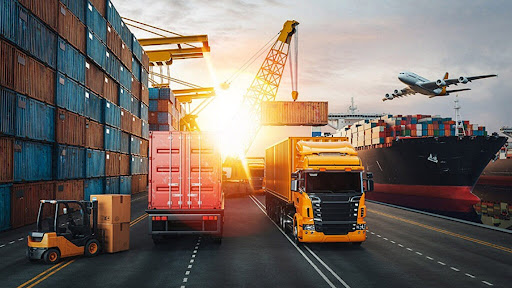
How to Choose the Right Logistics Service in India
The logistics sector in India is the backbone of the economy, facilitating the seamless movement of goods and services across the nation. With the rapid growth of e-commerce, manufacturing, and retail sectors, the demand for efficient logistics services has skyrocketed. Whether you are a small business owner or a large corporation, selecting the right logistics partner is crucial for operational efficiency and customer satisfaction. This guide provides a comprehensive roadmap for choosing the best logistics service in India.
Understanding the Indian Logistics Landscape
India's logistics industry is vast and diverse, encompassing transportation, warehousing, freight forwarding, and supply chain management. Key factors influencing the sector include:
-
Geographical Diversity: India’s varied terrain, from mountains to plains, requires adaptable logistics solutions.
-
Government Policies: Initiatives like the Goods and Services Tax (GST) and the Make in India campaign have streamlined operations but also introduced compliance requirements.
-
Technological Integration: Digital platforms and automation are transforming the logistics industry, offering better tracking and efficiency.
Key Factors to Consider When Choosing a Logistics Service
1. Type of Logistics Service Required
Understanding your specific logistics needs is the first step:
-
Transportation Services: For businesses focusing on the movement of goods.
-
Warehousing Solutions: Ideal for storing inventory before distribution.
-
Supply Chain Management: Comprehensive solutions for managing the flow of goods from supplier to customer.
-
Freight Forwarding: For international shipping and customs clearance.
Evaluate whether the logistics provider specializes in your required service and industry.
2. Experience and Expertise
A logistics company with a proven track record in your industry can better understand your unique challenges. Check for:
-
Years of experience.
-
Client testimonials and case studies.
-
Awards or certifications indicating industry recognition.
3. Coverage and Network
India’s size and diversity demand a logistics provider with a robust network. Ensure the provider offers:
-
Pan-India coverage.
-
Regional expertise in specific states or areas.
-
International shipping capabilities if required.
4. Technology and Tracking
Modern logistics relies heavily on technology for efficiency and transparency. Look for:
-
Real-time tracking capabilities.
-
Integration with your existing systems (ERP, CRM, etc.).
-
Advanced analytics for predictive insights.
5. Cost-Effectiveness
While cost is a significant factor, it should not compromise quality. Consider:
-
Transparent pricing models.
-
Value-added services like packaging, insurance, or expedited shipping.
-
Volume-based discounts or contracts for long-term partnerships.
6. Compliance and Certifications
Ensure the logistics provider adheres to regulatory standards, including:
-
GST compliance.
-
Safety certifications for hazardous goods.
-
International certifications for export/import services, like ISO or AEO.
7. Customer Service and Communication
Effective communication is key to resolving issues and ensuring smooth operations. Assess:
-
Availability of a dedicated account manager.
-
Responsiveness to queries and complaints.
-
Multilingual support if operating in diverse regions.
8. Scalability and Flexibility
Choose a logistics partner capable of scaling their services as your business grows. Evaluate:
-
Ability to handle increased volumes during peak seasons.
-
Flexibility to adapt to changes in your supply chain.
9. Sustainability Practices
With growing environmental concerns, many businesses prioritize eco-friendly practices. Check for:
-
Use of electric vehicles or fuel-efficient fleets.
-
Green warehousing solutions.
-
Waste management and recycling initiatives.
Steps to Evaluate a Logistics Provider
1. Conduct Thorough Research
Start by creating a list of potential logistics providers. Use online reviews, industry forums, and professional networks for recommendations. Shortlist companies based on their expertise, reputation, and service offerings.
2. Request Proposals and Compare
Reach out to shortlisted providers with a detailed request for proposal (RFP). Include specifics like:
-
Type of goods and average volume.
-
Preferred routes and delivery timelines.
-
Any special requirements (e.g., temperature control for perishables).
Compare proposals based on cost, service scope, and added benefits.
3. Visit Facilities
If feasible, visit the logistics provider’s warehouses or offices. Assess:
-
Storage conditions and safety measures.
-
Technology and equipment used.
-
Overall organization and professionalism.
4. Test the Service
Before committing to a long-term contract, consider a trial period. Monitor:
-
Timeliness of deliveries.
-
Quality of customer service.
-
Accuracy of tracking and reporting.
Challenges in the Indian Logistics Sector
While India’s logistics industry has seen significant advancements, it still faces challenges:
-
Infrastructure Gaps: Inadequate roadways and ports in certain regions.
-
Regulatory Hurdles: Complex compliance requirements for cross-border trade.
-
Fragmentation: Dominance of small, unorganized players in rural areas.
Choosing a logistics provider adept at navigating these challenges ensures smoother operations.
Popular Logistics Companies in India
Some leading players in the Indian logistics sector include:
-
Blue Dart: Renowned for express delivery and courier services.
-
DHL Supply Chain: Specializes in supply chain management.
-
Gati: Offers comprehensive logistics and warehousing solutions.
-
Delhivery: A tech-driven company excelling in e-commerce logistics.
-
Allcargo Logistics: Expertise in multimodal transport and international freight forwarding.
Conclusion
Choosing the right logistics service in India requires a thorough understanding of your business needs and careful evaluation of potential partners. Consider factors like experience, network coverage, technology, and cost-effectiveness. A reliable logistics provider not only enhances operational efficiency but also strengthens your brand’s reputation by ensuring timely and safe delivery of goods. With the right partner, you can focus on growing your business while leaving the complexities of logistics management to the experts.